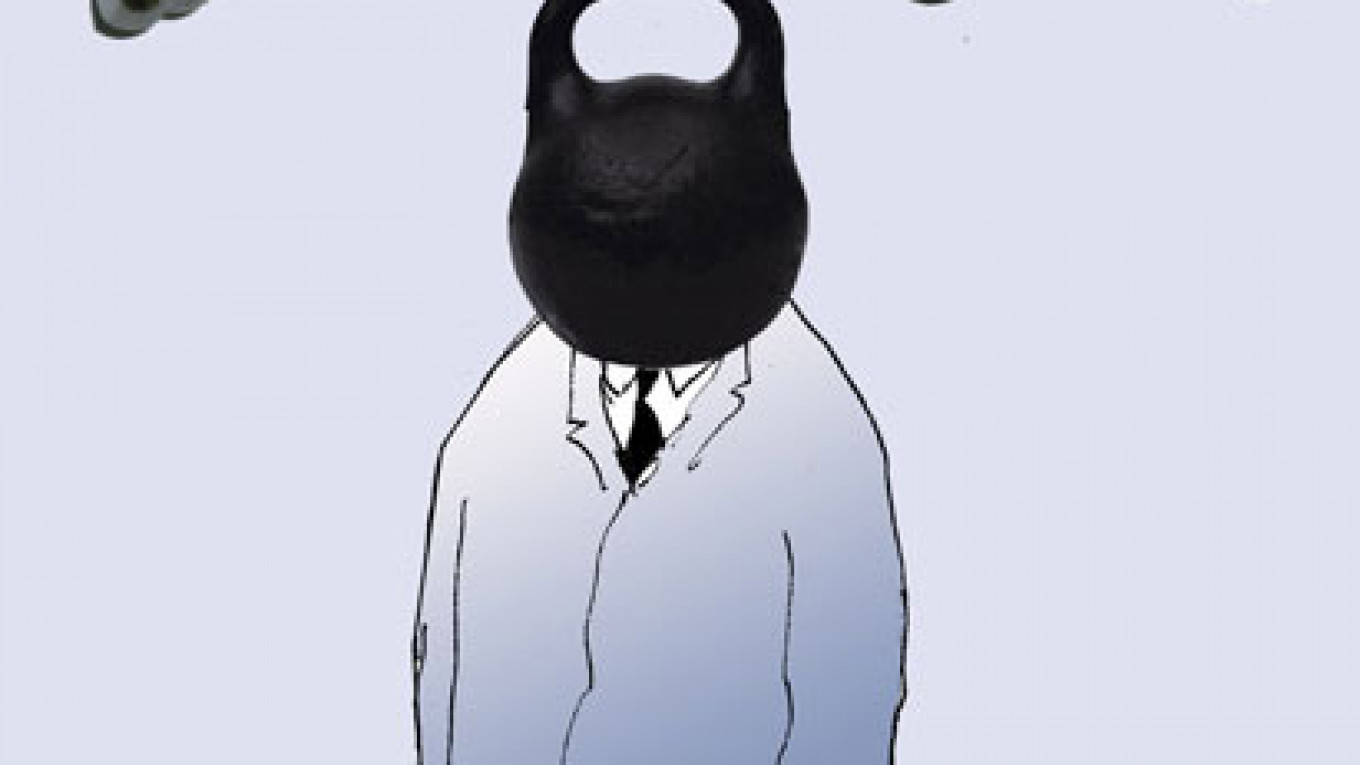Тяжёлый: heavy, difficult, oppressive, depressed
Тяжёлый (heavy), like its antonym лёгкий (light), is more than just a description of weight. It also refers to a variety of difficult, depressing, or oppressive qualities — you know, stuff that is, like, heavy, man.
It can describe something that weighs a lot, like тяжёлый чемодан (a heavy suitcase), the bane of my existence when I am traveling. It might also be used to describe something that doesn't weigh a lot, but more than expected — like the small traveling purse that I pack to the brim with electronics and books.
This дамская сумочка (ladies' purse) may look like it's only filled with lipstick and lace hankies, but when porters try to pick it up, they exclaim: Уф! Тяжёлая! Что у вас в сумке — кирпичи? (Yikes! That's heavy. What have you got in your bag — bricks?)
Тяжёлый can also be used to describe thick cloth, like тяжёлые шторы (heavy curtains), or something that gives the impression of weight, like тяжёлые тучи (thick clouds). On gloomy days, Russians perceive the sky to hang low, which may be technically impossible but is very expressive as тяжёлое низкое небо (literally, "heavy, low-hanging sky").
Low ceilings can also be heavy in Russian, as if they pressed down on the inhabitants: Они жили в старом доме с тяжёлыми низкими потолками (They lived in an old house with oppressive low ceilings).
Greasy or rich food can also be on the heavy side: После тяжёлого обеда я хотела полежать (I wanted to lie down for a while after the heavy noon-day meal).
People, creatures and other objects can be тяжёлые in several senses. Most commonly, тяжёлый refers to people who are unsociable, depressed, or argumentative and therefore difficult to get along with. Жена — очень тяжёлый человек, и беременность сделала её совсем невыносимой (My wife is, in general, a very difficult person, and when she got pregnant, she became completely unbearable).
When used to describe an audience, тяжёлый means difficult in the sense of impossible to engage, easily distracted or hard to keep under control. In American English, тяжёлая аудитория in the theater is a tough crowd. In school, тяжёлый класс might be an unruly class.
Тяжёлый can also be a synonym for большой (massive), so you might come across a тяжёлая собака (huge dog). It can also have the sense of being clumsy, so you might hear about тяжёлый мужик (lumbering hulk). Тяжёлые черты лица are gross features.
When used to describe the arts, тяжёлый usually refers to a style that is obtuse, convoluted, or otherwise difficult. The writer with тяжёлый язык (ponderous writing style) is not someone you take along for vacation beach reading.
But there are also heavy calques from English. Тяжёлый рок (hard rock) may be hard to listen to, but it's not Wagner.
And then тяжёлый can be used to describe anything that causes difficulty, emotional or physical suffering, such as тяжёлая болезнь (serious illness).
Or the aftermath of a natural disaster: Тяжёлые последствия пожаров будут долго ощущаться (The dire consequences of the fires will be felt for a long time). Or a hard day with the kids: Тяжёлый день! (What a rough day!)
Thinking about your тяжёлые дети (ill-behaved children), you can sigh: У меня тяжело на душе (I'm heart sick; literally, "it's heavy on my soul.")
But your friend will say: Не унывай! Станет легче! (Lighten up! Things will get easier!)
Or at least your kids will get older.
Michele A. Berdy, a Moscow-based translator and interpreter, is author of "The Russian Word's Worth" (Glas), a collection of her columns.
A Message from The Moscow Times:
Dear readers,
We are facing unprecedented challenges. Russia's Prosecutor General's Office has designated The Moscow Times as an "undesirable" organization, criminalizing our work and putting our staff at risk of prosecution. This follows our earlier unjust labeling as a "foreign agent."
These actions are direct attempts to silence independent journalism in Russia. The authorities claim our work "discredits the decisions of the Russian leadership." We see things differently: we strive to provide accurate, unbiased reporting on Russia.
We, the journalists of The Moscow Times, refuse to be silenced. But to continue our work, we need your help.
Your support, no matter how small, makes a world of difference. If you can, please support us monthly starting from just $2. It's quick to set up, and every contribution makes a significant impact.
By supporting The Moscow Times, you're defending open, independent journalism in the face of repression. Thank you for standing with us.
Remind me later.








